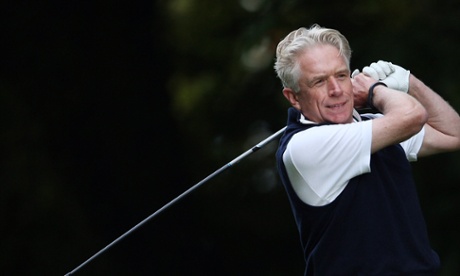
The next Ryder Cup, which kicks off on Friday, is not short of ambition. The tournament will bring together some of the world’s finest golfers and 45,000 fans at the Gleneagles Hotel in rural Perthshire. Aside from the golf, spectators will also be privy to one of the most significant technological feats in modern sport.
Phones were banned at the 2010 Ryder Cup but next week they will play a central part in the visitor experience, as a vast wifi network streams the action direct to mobile devices positioned anywhere on the course. The move is intended to revolutionise the tournament for spectators who would otherwise be cut out of the game when they aren’t at the heart of the action.
With oversight of technology, TV production and distribution, and digital media, Mark Lichtenhein, CIO of PGA European Tour is the man responsible for building the network and delivering the material that is broadcast to those at Gleneagles and the rest of the world. “We’re about to embark upon the most ambitious project yet,” says Mark. “It’s a pretty phenomenal undertaking.”
Similar ventures have been attempted before in the football world. But taking the process out of the stadium is what makes the project so complicated. Mark says: “It’s similar but over a much wider area. On the flip-side, people are more densely packed together. I’m very excited about it but it does make me wake up at night.”
Those who have struggled to buy a reliable 20Mbps connection in towns and cities might empathise with the task of introducing a 10Gbps wifi connection to rural Scotland. The rarity of such speeds is not lost on Mark: “It’s probably unprecedented in Perthshire.”
In 2010, he had a different solution: a portable television in the hands of every spectator. But as maintenance costs skyrocketed and the perceived security threat of mobile phones as potential detonator devices dwindled, it was back to the drawing board. It is testament to advances in the mobile industry that such an ambition can now be realised.
As well as looking after broadcasts, Mark is also in charge of delivering the new Ryder Cup spectator app. It’s designed to deliver logistical information to those navigating the course, including signage, bus times and sat nav that not only tells them where the moving players currently are but also the best “point of intercept”. “The more help you can give the spectators the better,” says Mark.
The proliferation of mobile devices and video-sharing apps, like Instagram and Vine, has caused event organisers in the sports world a commercial headache over the last few months. In August, the Premier League warned fans that posting Vines of goals online was illegal, after thousands were shared for free during the World Cup, threatening the financial interests of traditional broadcasters.
Mark is less anxious about a similar problem arising in golf: “It’s pretty difficult to put together any footage that had any commercial value.” But he adds, “Our litmus test is people trying to to make money out of it.”
Data has become an essential component of golf both for players and fans. Mark says that providing statistics to consumers at speed is essential and that his team is becoming increasingly reliant on the cloud to relay it from the course to their digital applications as quickly as possible.
But the automated process does require significant leg-work to set up, namely “building wifi in a new field” on a regular basis, and then dismantling it all again at the end of the tournament. With so much sensitive scoring and payment data flying around the ether, cybersecurity is high up on Mark’s priorities. He says “any event in Europe and America is seen to be a threat” so their tours have to be especially secure.
While technology brings new risks to large public events, this year’s Ryder Cup will also show just how effectively a business can engage its customers when it is truly innovative.
The Driving innovation hub is funded by HP. All content is editorially independent except for pieces labelled advertisement feature. Find out more here.

